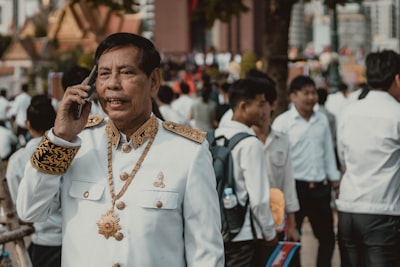Cambodia, Thailand, and the Web of Scam Operations: What Recent Clashes Reveal About Regional Power and Crime
Southeast Asia is once again a center of international intrigue—not just because of political drama, but due to crackdowns on massive scam operations along the Cambodian-Thai border. At the heart of the latest controversy is Sam Rainsy’s claim that Hun Sen’s attacks on Thailand aren’t about nationalism, but fear—fear that losing illicit income from scam syndicates will threaten the foundations of power in Phnom Penh. This raises pressing questions about cross-border crime, the sustainability of authoritarian regimes, and how online scams are quietly shaping geopolitics.
Inside the Shadow Economy: Why Online Scams Flourish Along the Cambodian Border
One of the largest concerns facing Southeast Asian law enforcement today is the proliferation of scam centers—often run by Chinese syndicates operating in special economic zones or border towns. These scam operations allegedly generate billions of dollars annually. Experts estimate the revenue from such criminal enterprises may be equivalent to nearly half of Cambodia’s official GDP.
Key reasons why scam networks thrive in this region:
- Weak rule of law and corrupt officials who may turn a blind eye in exchange for kickbacks
- Proximity to Thailand and other neighbors with stronger currencies and digital infrastructure
- Previous depletion of natural resources and loss of traditional income sources, forcing regimes to tolerate or tacitly support new illicit industries
Geopolitical Tensions: Why Thailand’s Crackdown Matters
Thailand’s intensification of operations against scam networks is significant for a few reasons:
- Threat to illicit revenue streams: As Thailand targets scam camps and trafficking networks, Cambodia’s powerful elite—allegedly including Hun Sen’s own family—risk losing a major source of off-the-books funding.
- Nationalism as a smokescreen: Political analysts argue that anti-Thai rhetoric is being used to divert public attention away from deeper issues, such as corruption, inequality, and authoritarian consolidation in Cambodia.
- Parallels to past crises: Similar nationalist agitation has been triggered in previous years to consolidate power or distract from domestic failures.
Border Crime, Authoritarian Power, and the Digital Underworld
Online and call-center scams are not just local problems. They present major challenges with international law enforcement, human trafficking, and even cybersecurity. Victims are not only from Southeast Asia, but span the entire globe. Meanwhile, criminal profits can reinforce the stability of non-democratic regimes by providing alternative revenue flows when other sources falter.
Comparison: Cambodia’s Scam Syndicates vs. Other Regional Crime Trends
| Country | Main Crime Issue | Estimated Annual Revenue | Government Response |
|---|---|---|---|
| Cambodia | Online scam centers | $12B+ | Mixed; crackdown sporadic |
| Myanmar | Trafficking, scams | $2B+ | Weak control in borderlands |
| Thailand | Online fraud, trafficking | $3B+ | Aggressive enforcement |
What’s Next? Key Questions and Emerging Issues
- Will international pressure force Cambodia to clamp down on scam networks even if it hurts the regime’s financial base?
- Can civil society and opposition movements leverage anti-corruption activism to push for reform?
- How does the cross-border element complicate traditional diplomacy and police cooperation in Southeast Asia?
Frequently Asked Questions
Q: Why are Cambodia and Thailand in conflict over scam crackdowns? A: Thailand’s tough action against border scam hubs threatens revenue for powerful groups in Cambodia, leading to political tension and blame games.
Q: How much money do these scams generate? A: Estimates suggest over $12 billion USD a year, or about 40% of Cambodia’s GDP.
Q: Why does Hun Sen focus on attacking Thailand? A: Critics say it’s to distract from internal problems and to protect lucrative criminal networks linked to his regime.
Q: How do these scams affect regular people? A: Many victims are lured with bogus job offers, then forced to participate in scams or suffer abuse. The broader rise in cybercrime erodes trust and hampers economic growth.
Conclusion: The Bigger Picture
The ongoing tension between Hun Sen’s Cambodia and Thailand goes far deeper than nationalism or border disputes. It’s a revealing window into how transnational crime, political survival, and digital-age corruption are colliding in Southeast Asia. For anyone seeking to understand the new political economy of the region, tracking the web of scams and their political protection offers crucial insights—and reasons for concern.
For more information and resources, consider visiting:
- United Nations Office on Drugs and Crime (UNODC)
- Interpol Southeast Asia Cybercrime Reports
- Human Rights Watch: Cambodia

Comments
No comments yet. Be the first to comment!